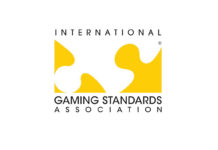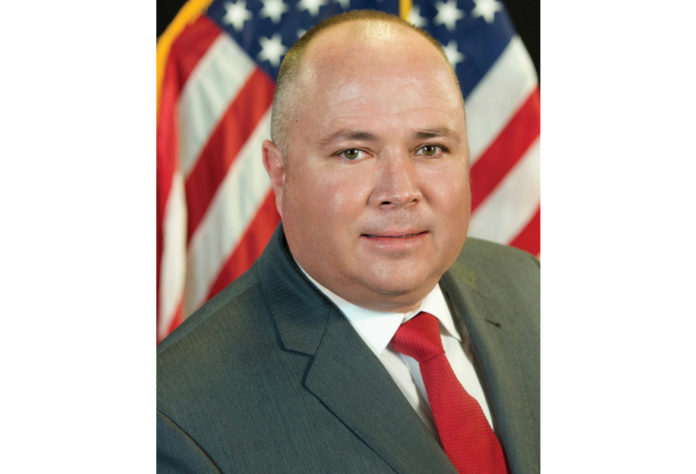by Shawn Pensoneau
X
The National Indian Gaming Commission (NIGC) continues to play a fundamental role in fostering economic opportunities for Indian Country through tribal gaming operations. Established in 1988 with the passage of the Indian Gaming Regulatory Act (IGRA), the NIGC has remained adaptable and responsive to the changing landscape of the Indian gaming industry.
The NIGC places significant emphasis on meaningful consultation with tribal nations, considering it an integral part of fulfilling its statutory obligations. Beginning in June 2021, the Commission initiated an extensive government-to-government consultation focusing on various topics aimed at strengthening the tools required to execute its mission and engaging in a progressive planning effort. The primary purpose of these consultations was to align NIGC practices and regulations with statutory requirements set forth within IGRA.
Following is an update on the NIGC’s recent initiatives and regulatory revisions, highlighting its commitment to tribal sovereignty and the integrity of the Indian gaming industry.
Consultations with Tribal Nations
One of many notable initiatives stemming from these consultations was an enhanced consultation policy. The NIGC introduced remote video conferencing as part of its consultation policy, ensuring accessibility for all tribes. The agency also made an assertive effort to coordinate NIGC’s consultation planning with other federal agencies involved in aspects of Indian gaming. Additionally, the Commission committed to updating tribal leaders within a specified period following the conclusion of the consultation sessions. The agency published this transparent policy in October 2022, demonstrating the NIGC’s commitment to open and collaborative governance.
Strategic Plan for the Future
In its efforts to continually improve and adapt, the NIGC unveiled a new strategic plan that places a strong emphasis on agency goals and industry integrity – Preparedness, Outreach and Accountability. These initiatives represent convergence of staff perspectives and play a crucial role in monitoring and measuring achievements of strategic goals and objectives. This strategic plan was published in January 2022, and reflects the NIGC’s commitment to ongoing enhancement of agency operations.
Facility Licensing
The NIGC also engaged in consultation with tribes regarding facility licensing notification requirements. The Commission acknowledged the challenges tribes face when assigning street addresses for new facilities due to circumstances beyond their control, often requiring assistance from non-tribal governments. Considerations included finding a balance to maintain an accurate accounting of all operations and the operations’ locations and avoid subjecting an operation’s opening date to an address designation that is beyond the tribe’s control. In response, the NIGC published a final rule in July 2022, streamlining these requirements and facilitating a productive facility opening.
Ordinance and Regulatory Adoption
Another important topic of consultation addressed existing requirements for submitting ordinance for the Chair’s review. The previous regulations posed a challenge when tribes needed approval before their regulatory bodies adopted regulations. The revision simplifies rules for submitting tribal gaming ordinances and amendments. It allows electronic or physical document submission, clarifies requirements for ordinances or resolution amendments, removes the need for tribes to provide gaming resolutions up front and sets a 90-day deadline for NIGC Chair’s decision on complete submission. The revision also mandates an authentic resolution for changes to pending ordinances, and finally, eliminates the publication of a tribe’s entire gaming ordinance in the Federal Register. The NIGC published a final rule in September 2022, to enhance efficiency and encourage tribal regulatory autonomy.
Treatment of “Free Play”
In response to feedback from tribal leaders and industry experts on changing audit standards, the NIGC conducted consultations to determine whether “free play” should be included in the annual fee rate calculations. The outcome clarified that free play is not required in the NIGC fee rate calculation, while still ensuring the NIGC’s ability to verify accuracy. Essentially, this allows each tribe to choose whether to include free play in its fee rate calculation. This decision respects tribal self-governance and promotes fairness, as evidenced in the final rule published in September 2022.
Streamlined Management Contracts and Background Investigations
To further enhance efficiency, the NIGC introduced regulatory revisions aimed at reducing the number of investigations required, focusing on individuals or entities with ten percent or greater interest. This marked a departure from the previous practice of investigating the top ten individuals with a financial interest. The final rule was published in the Federal Register in November 2022, underscoring the NIGC’s commitment to efficient oversight.
Balancing Oversight for Small and Charitable Gaming
Recognizing the diversity within the Indian gaming community, the NIGC sought to minimize the financial burden on small and charitable operations while maintaining oversight standards for these operations. Revisions include elimination for the Commission’s waiver requirement for reviewed financial statements. If a tribal gaming operation grossed less than $2 million in the previous fiscal year and the tribe or Tribal Gaming Regulatory Authority (TGRA) allows it, they can submit the reviewed financial statements. Revisions allow introducing a third tier for chartable gaming operations with annual revenues of $50,000 or less. With tribal approval, these operations can report finances monthly to the tribe, or TGRA, and the tribe or TGRA then certifies annual compliance. A final rule, published in September 2022, demonstrated the Commission’s dedication to balancing oversight and cost-effective methods for the small and charitable gaming markets within the Indian gaming industry.
Facilitating Self-Regulation
The NIGC seeks to increase tribal access to the petitioning process for a certificate of self-regulation and raising awareness of this provision within IGRA. The deliberations also addressed long-standing concerns regarding the administration of the Office of Self-Regulation and reclassified the Director of Self-Regulation as a non-Commissioner position. Through the consultation process, NIGC received input related to governing the Office of Self-Regulation and associated timeframes, resulting in a final rule published in October 2022, promoting tribal engagement and participation in this program.
Enhanced Transparency through Audits
Addressing disclaimed and adverse audits, crucial components of NIGC’s compliance approach was another key focus of the consultation topics. Feedback from tribes provided valuable insights into the circumstances leading to such audits and consideration when engaging in independent audits. A final rule was published in the Federal Register in December 2022 that affirms the NIGC’s commitment to transparency and responsiveness to findings.
Clarifying Qualifications for Key Employees and Primary Management Officials
One long-standing concern has been NIGC’s collaboration with tribes to clarify qualifications for key employees and primary management officials (KE/PMO). The commission conducted consultations to address questions regarding tribal background and licensing programs to access criminal history and records via the NIGC fingerprint program. Outcomes include the flexibility to consider background checks and licensing for TGRA, security officers, and IT personnel as key employees or primary officials, and guaranteed access to the fingerprint program. A final rule published in August 2023 provides clarity on these classifications.
NIGC’s Commitment
The Commission firmly promotes inclusive government-to-government consultation and collaborative ongoing dialogue throughout the process. The NIGC remains steadfast in its support of tribal sovereignty, self-determination, and the integrity of Indian gaming. Through meaningful consultations, regulatory updates, and strategic planning, the NIGC continues to evolve and adapt ensuring a thriving and accountable Indian gaming industry that benefits Indian Country and preserves the integrity of the industry.
If you have any questions or inquiries, please email Shawn Pensoneau, Intergovernmental and Legislative Affairs, at shawn.pensoneau@nigc.gov. For additional information on the latest updates and ongoing activities of the Commission, visit www.nigc.gov.
















































